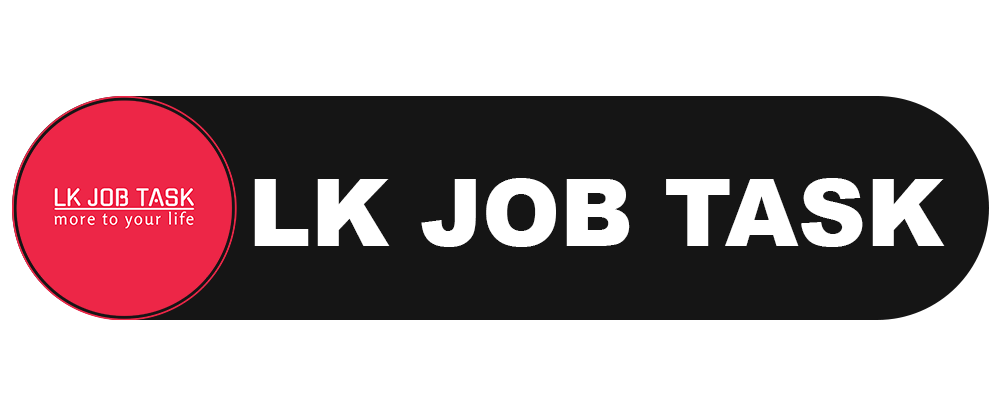Working in a bank can be a rewarding and dynamic career choice, offering a range of opportunities for individuals with diverse skill sets and interests. Here's a detailed guide on how to work in a bank, along with an exploration of some of the most popular bank jobs globally.
Educational Qualifications
To enter the banking industry, you need to meet certain educational qualifications. While the minimum requirement for entry-level positions is often a high school diploma or equivalent, many positions, especially those in management or specialized areas like finance and economics, may require a bachelor's degree.
Choose Your Career Path
The banking industry provides various career paths suited to different interests and skill sets. Some of the most popular bank jobs include:
1. Retail Banking
Retail banking encompasses roles such as tellers, customer service representatives, and branch managers who directly interact with customers. In this line of work, individuals serve as the face of the bank, assisting customers with transactions, addressing inquiries, and ensuring a positive customer experience.
2. Corporate Banking
Corporate banking involves working with business clients, managing relationships, and facilitating financial transactions. Professionals in this field help companies with their banking needs, providing services such as lending, cash management, and trade finance. They play a critical role in supporting business growth and financial stability.
3. Investment Banking
Investment banking is a highly specialized field focused on financial advisory, mergers and acquisitions, and capital markets. Professionals in this area help companies raise capital, assist in strategic decision-making, and provide expertise in complex financial transactions. It requires strong analytical skills and an understanding of market dynamics.
4. Risk Management and Compliance
Risk management and compliance professionals ensure that the bank operates within regulatory boundaries and effectively manages risks. They evaluate potential risks associated with financial transactions, implement risk mitigation strategies, and ensure compliance with local and international regulations. This role requires a keen eye for detail and a thorough understanding of the regulatory landscape.
5. Financial Analysis
Financial analysts play a critical role in analyzing financial data and providing insights to support decision-making. They evaluate financial statements, monitor market trends, and assess investment opportunities. Attention to detail and strong analytical skills are essential in this field.
Acquire Relevant Skills
To succeed in the banking industry, it's crucial to acquire certain skills that are highly valued by employers. Here are some key skills to focus on:
Communication Skills
Effective communication is essential for customer-facing roles and positions that require interaction with clients, colleagues, and stakeholders. A strong ability to convey information clearly, listen actively, and build rapport is essential in the banking sector.
Analytical Skills
Strong analytical skills are particularly important for roles involving financial analysis, risk management, and investment banking. Being able to interpret and make sense of complex financial data is crucial for informed decision-making.
Attention to Detail
Accuracy is critical in banking, especially when dealing with financial transactions. Developing a keen eye for detail helps to ensure error-free work and maintain high levels of customer satisfaction.
Customer Service Skills
For roles in retail banking, providing excellent customer service is vital. Being able to address customer needs, resolve issues, and maintain a positive customer experience is crucial for building customer loyalty.
Technical Proficiency
Familiarity with banking software, financial modeling tools, and other technology platforms is increasingly important in the industry. Having a solid foundation in technology helps streamline processes, increase efficiency, and adapt to the digital transformation occurring within banking.
Gain Experience
Gaining practical experience is invaluable when pursuing a career in banking. Consider the following avenues to gain experience:
Internships
Seek internships or entry-level positions to gain practical experience and exposure to the banking environment. Internships provide an opportunity to learn about different areas of banking and develop essential skills.
Networking
Networking is an essential aspect of career advancement in the banking industry. Attend industry events, connect with professionals on LinkedIn, and explore networking opportunities to enhance your chances of landing a banking job. Building strong professional relationships can open doors and lead to valuable career opportunities.
Build a Strong Resume
Crafting a strong resume is essential to stand out in the competitive banking industry. Here are some tips for creating an impressive resume:
Highlight
relevant education, such as a bachelor's degree in finance or economics.
Showcase
skills and experiences relevant to the position you are applying for.
Tailor
your resume to each specific job application, emphasizing the skills and
experiences that align with the position's requirements.
nclude any relevant certifications or training you have obtained, such as Chartered Financial Analyst (CFA) or Certified Financial Planner (CFP).
Apply for Positions
When it comes to job searching in the banking industry, utilize online job portals, company websites, and professional networks to find job openings. Here are some steps to follow when applying for bank positions:
Regularly
check online job portals for updates on available positions.
Visit the
websites of banks you are interested in working for to search for job
vacancies.
Leverage
your professional network to inquire about potential job opportunities.
Submit well-crafted cover letters and resumes that specifically address the requirements of the job. Customize each application to demonstrate your suitability for the position.
Prepare for Interviews
Preparation is key to succeeding in job interviews. Here are some tips to help you prepare for a banking job interview:
Research
the bank and the position you're applying for. Familiarize yourself with their
products, services, and industry reputation.
Practice
common interview questions and prepare concise and thoughtful responses.
Be ready
to discuss your relevant experiences and skills, highlighting how they align
with the position's requirements.
Demonstrate your understanding of the banking industry and its challenges by staying updated on current trends and news.
Continuous Learning
To thrive in the banking industry, it's essential to commit to continuous learning and professional development. Here are some ways to stay ahead:
Stay
informed about industry trends, financial regulations, and technological
advancements. Subscribe to industry newsletters and follow reputable financial
news sources.
Consider pursuing additional certifications, such as the Chartered Financial Analyst (CFA) or Certified Financial Planner (CFP), to enhance your qualifications and marketability in the industry.
Most Popular Bank Jobs
Now let's take a closer look at some of the most popular bank jobs:
1. Bank Teller
Bank tellers are responsible for processing customer transactions, handling cash, and providing basic account information. They play a crucial role in ensuring smooth day-to-day banking operations.
2. Customer Service Representative
Customer service representatives assist customers with inquiries, account maintenance, and problem resolution. They are the primary point of contact for customers and are responsible for delivering exceptional service.
3. Loan Officer
Loan officers evaluate loan applications, assess creditworthiness, and recommend approval or denial. They play a critical role in managing the lending process and ensuring the bank's risk exposure is mitigated.
4. Financial Analyst
Financial analysts analyze financial data, prepare reports, and provide insights to support decision-making. They help banks make informed investment decisions, manage risks, and optimize performance.
5. Branch Manager
Branch managers oversee the operations of a bank branch, managing staff, and ensuring efficient service delivery. They are responsible for driving business growth, maintaining customer satisfaction, and meeting branch performance targets.
6. Investment Banker
Investment bankers engage in financial advisory, mergers, and acquisitions, and capital market activities. They work closely with clients to provide tailored financial solutions and facilitate complex transactions.
7. Risk Analyst/Manager
Risk analysts/managers assess and manage risks associated with financial transactions and business operations. They develop risk management strategies, ensure regulatory compliance, and safeguard the bank's financial stability.
8. Compliance Officer
Compliance officers ensure that the bank adheres to regulatory requirements and industry standards. They develop and implement compliance programs, monitor activities to prevent violations, and provide guidance on compliance-related matters.
In
Conclusion
Working in a bank offers a diverse array of career paths, allowing individuals to align their skills and interests with specific roles. Whether you're passionate about customer service, financial analysis, or strategic planning, the banking industry provides a range of opportunities for professional growth and development.
In addition
to the most popular bank jobs mentioned, it's worth exploring professional
certifications such as the Chartered Financial Analyst (CFA) for professionals
in finance and investment. The Certified Financial Planner (CFP) certification
focuses on financial planning and wealth management, while the Certified
Internal Auditor (CIA) is relevant for those interested in risk management and
internal audit functions.



























Comment your thoughts below